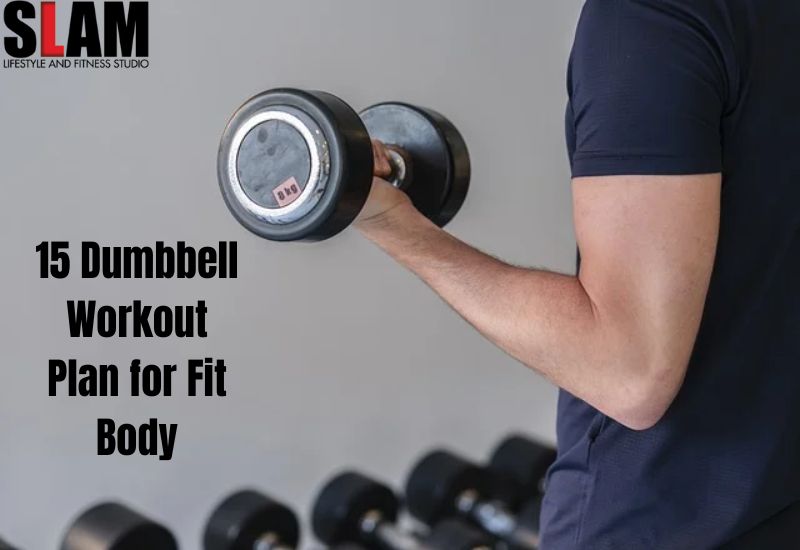Introduction
Engaging in weightlifting is an excellent method for maintaining optimal fitness and well-being. This activity promotes muscle growth, enhances physical strength, and boosts overall physical performance. However, like any other form of exercise, weightlifting requires proper training and execution to avoid injuries and get the desired results. We at SLAM Fitness offer functional training and personalised programs, making it an excellent choice for anyone who is looking to improve their fitness and overall well-being.
In this blog, we will discuss seven signs of wrong weightlifting. By recognising these signs and making some necessary changes in your workout routine, you can maximise your gains while minimising the risk of injury.
Whether you are new to weightlifting or an experienced person looking to improve your technique, these tips will help to make sure that you are getting the most out of your workouts. Read till the end of the blog to Signs Of Wrong Weight lifting.
7 Signs Of Wrong Weightlifting That Need Improvement
Weightlifting is a fantastic way to build muscle and improve your overall health, but if done incorrectly, it can lead to injury and wasted effort. By identifying the mistakes and making the necessary adjustments, you will be on your way to achieving your fitness goals. Here are some of the most common mistakes and the signs of wrong weightlifting that need improvement:
1# You’re not using a full range of motion
- One of the most common mistakes in weightlifting is not using a full range of motion. Many people think that doing partial reps will give them quicker results, but the reality is quite different from that.
- Using a full range of motion means going through the complete movement for each exercise. For example, if you are doing bicep curls, that means fully extending your arm at the bottom and curling all the way up to your shoulder at the top.
- If you are only performing partial reps, you are cheating yourself out of potential gains. Partial reps don’t activate as many muscle fibres as full-range movements do. This can lead to imbalances in your muscles and hinder overall progress.
- Additionally, using a full range of motion helps with flexibility and mobility. By working through a complete range of motion regularly, you will improve joint health and decrease your risk of injury.
- It’s important to note that using proper form while lifting is crucial when incorporating a full range of motion into your workout routine. Always prioritise good form over adding more weight or speed to an exercise.
2# You’re not lifting heavy enough weights
- One of the most common mistakes that people make when weightlifting is not lifting heavy enough weights. Often, individuals are afraid of pushing themselves too hard or injuring themselves, so they opt for lighter weights. However, this can hinder progress and prevent them from seeing results.
- Lifting heavier weights challenges your muscles more and helps to build strength and muscle mass. If you are constantly lifting the same amount of weight without increasing it over time, your body will adapt to it and stop making progress. This is called a plateau.
- It is important to note that lifting heavy doesn’t mean sacrificing form or technique. You should still maintain proper form while gradually increasing the weight load. It’s also essential to warm up properly before attempting any heavy lifts.
- If you are not sure about how much weight you should be lifting, start with a weight that feels challenging but manageable for 8 to 12 reps per set, and then you can gradually add more weight.
- Remember, building strength takes time and patience. Don’t expect immediate results overnight, and consistency is key to achieving long-term success in your fitness journey.
3# You’re not using the proper form
- Using proper form when lifting weights is essential to prevent injuries and maximise the effectiveness of your workout. Many inexperienced people may unknowingly follow improper form, which can lead to muscle strains.
- One issue with poor form is not engaging the right muscles for a particular exercise. This often happens when people try to lift too much weight without focusing on their technique first. It is important to start with lighter weights until you learn the proper form before adding up in weight.
- Remember that different exercises require different forms and no single approach. It is important to prioritise form over lifting more than your body can handle correctly.
4# You’re not resting long enough between sets
- Resting between sets is an essential part of weight lifting. It allows your muscles to recover, replenish energy and prepare for the next set. However, resting too little or too long can affect the effectiveness of your workout.
- If you are not resting long enough between sets, it’s likely that you will experience muscle tiredness and decreased performance. The recommended rest time between sets varies depending on the exercise and intensity level. For example, if you are doing heavy squats or deadlifts, you may need to rest up to 3 to 5 minutes between sets.
- On the other hand, if you are doing lighter exercises like bicep curls or shoulder raises with low weights, then a shorter rest period of around 30 seconds to a minute should be sufficient.
- It is also important to note that proper breathing techniques during your rest periods can help aid in recovery and improve focus before starting the next set. Resting too much can also negatively impact your workout as it reduces heart rate and blood flow to muscles which decreases their activation levels when exercising again.
- Adequate rest is crucial for optimal performance during weightlifting workouts. Always listen closely to your body signals so that you know when it’s time to take a break before resuming another round of exercise.
5# You’re not eating enough calories
- If you are weightlifting regularly but not seeing any significant changes in your body or strength gains, it’s possible that you are not eating enough calories. When you lift weights, your muscles break down and need to repair themselves with proper nutrition. This is where calorie intake becomes essential.
- Eating too few calories can hinder muscle growth and recovery. Even if your goal isn’t to gain mass, getting enough nutrients is essential for optimal performance during workouts.
- It is recommended that active individuals consume a minimum of 1,800-2,500 calories per day, depending on their gender, age and activity level.
- But keep in mind that not all calories are created equally. Focus on consuming nutritious foods such as lean proteins and healthy fats to fuel your workouts properly. A balanced diet will help provide the necessary energy for training sessions while also helping maintain overall health.
- If you find yourself struggling to eat enough throughout the day due to a busy work schedule or lack of appetite, try incorporating more frequent small meals into your routine instead of focusing only on three large meals per day.
6# You’re not drinking enough water
- One of the most crucial aspects of weightlifting is hydration. If you are not drinking enough water, your body won’t function optimally during a workout.
- When you sweat during exercise, your body loses fluids and electrolytes, which need to be replenished regularly. Failure to do so can result in dehydration, making lifting weights more challenging than usual.
- Drinking water before and after a workout is essential for keeping the body hydrated. However, experts recommend sipping on small amounts of water throughout your entire routine as well.
- Staying hydrated while lifting weights significantly impacts our performance and overall health. Remember always to keep track of how much water we consume daily by setting reminders or using an app.
7# You’re not getting enough sleep
- Getting enough sleep is an essential part of any fitness routine. If you are not getting good rest at night, it can affect your weightlifting progress.
- Sleep is important for muscle recovery and growth. While sleeping, the body engages in the process of repairing and rebuilding muscles that may have been damaged during exercise. This means that if you don’t get enough sleep, your muscles won’t have time to recover properly.
- Moreover, lack of sleep can also affect hormone levels in the body and can cause stress to the body leading to muscle breakdown instead of growth.
- In addition, poor quality or inadequate amount of sleep decreases energy levels causing sluggishness, affecting focus during workouts and overall productivity throughout the day. Therefore it is recommended for active adults to aim for 7 to 8 hours of sleep.
Things to keep in mind while weightlifting
Here are some of the most important things to remember while weightlifting to avoid unnecessary injuries:
- Warm up properly: Before lifting weights, warm up your muscles with some light cardio exercises like jogging or cycling.
- Use proper form: It is essential to use proper form while lifting weights to avoid injury and get the maximum benefit from your workout.
- Start with lighter weights: If you are new to weightlifting, start with lighter weights and gradually increase the weight as you get stronger.
- Stay hydrated: Drink plenty of water before, during, and after your workout to stay hydrated.
- Take breaks: Don’t overdo it with weightlifting. Take breaks in between sets to allow your muscles to rest and recover.
Achieving Your Fitness Goals With SLAM Fitness
SLAM Fitness is the ideal place for people embarking on their fitness journey. Our qualified fitness specialists will assist you in establishing realistic goals and creating a personalised workout regimen to ensure your success. Join us now and start working towards achieving your fitness objectives.
Conclusion
To conclude, it is important to remember that weightlifting is challenging, and there are many ways in which you can go wrong. Neglecting any of these, which is mentioned above, could result in minimised results or even injury.
It is also important to note that every individual has different needs when it comes to weightlifting; what works for one person may not work for another. Therefore, experimentation and listening to your body are the key to finding the right balance.
By paying attention to these seven signs of wrong weightlifting practices and making necessary adjustments in your routine as needed, such as incorporating adequate rest days or seeking guidance from a professional coach, you can take steps towards achieving better results safely and efficiently.
FAQs
1. What are the things beginners should keep in mind when lifting weights?
It’s important to start where you are and work your way up gradually. Using proper form and a full range of motion with lighter weights is better than using improper form or not completing the full range of motion with heavier weights.
2. How often should one rest between sets?
Rest time can vary depending on the intensity of your workout, but generally, resting for 30 to 90 seconds between sets allows enough time for recovery without losing momentum in your workout.
3. Is it important to drink water during the workout?
Staying hydrated during exercise helps regulate body temperature. Aim to drink at least half a litre of water before exercising.



